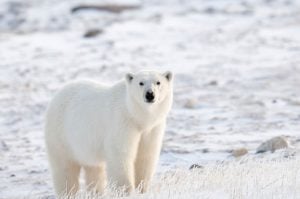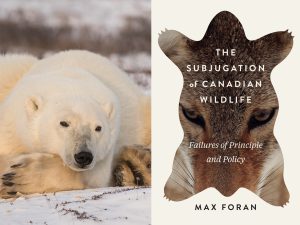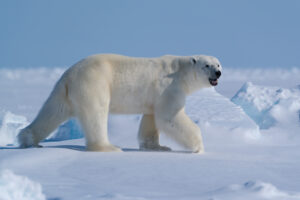Nominations are now open for the Shackleton Medal for the Protection of the Polar Regions. The prize recognizes individuals who, like the medal’s namesake, Sir Ernest Shackleton, have demonstrated courage, determination against the odds and leadership in their work to promote understanding of and protection of Earth’s polar regions.
The medal was launched on January 5, 2022, the centenary of Shackleton’s death, to recognize scientists, explorers, geopoliticians, environmental campaigners and individuals from any other profession who are working to preserve the Arctic and Antarctic. The inaugural medal and £10,000 (approximately CAD$17,000) in prize money were awarded to French glaciologist Heidi Sevestre, a rising star in the world of polar science who lives, works and communicates on the front lines of climate change: in Svalbard, Norway, where warming is happening six times faster than elsewhere on the planet. Last year’s recipient was British explorer Pen Hadow, who remains the only person to have trekked solo, and without resupply by third parties, from Canada to the Geographic North Pole and who more recently has been campaigning for the creation of a marine protected area in the Central Arctic Ocean.
Nominees in the last two years have included a scientist who watches walruses from space, a technologist who designed a robot that could film the underbelly of an Antarctic ice sheet and a glaciologist who drills ice cores that reveal centuries old secrets about our planet. As well as wanting to celebrate those who demonstrate Shackleton-worthy qualities, the award seeks to highlight that what happens at the poles affects us all, as some extreme weather events can be traced back to catastrophic change in the Arctic and Antarctic.
This year, Royal Canadian Geographical Society CEO John Geiger joins the panel of esteemed judges who will select the medal’s third recipient. The panel also includes world famous explorer Sir Ranulph Fiennes, Pirita Näkkäläjärvi, President of the Sámi Parliament in Finland, presenter Dan Snow, James Caird Society President Hon. Alexandra Shackleton, and Guardian U.S. editor Chris Michael.
“It’s a huge honour to join this eminent panel and to help identify and recognize outstanding individuals working for the protection of the polar regions, including notably the Indigenous peoples of the Arctic,” said Geiger.
The medal was established by the London, U.K.-based Shackleton Company, which supplies high quality expedition apparel and organizes exploring challenges. Nominations are open until April 5.
“The name Shackleton and the accomplishments of the great Antarctic explorer resonate down through the ages,” said Geiger from London, where he is attending the dedication of the Shackleton Memorial at Westminster Abbey on February 15, the 150th anniversary of the Anglo-Irish explorer’s birth. “The Shackleton Company exemplifies this excellence, and they are to be commended for their vision and support of this medal program which celebrates his remarkable legacy.”
Intriguingly, though he is inextricably linked to Antarctica, in his final years Shackleton sought to explore the Canadian Arctic, linking that legendary name with both polar regions, Geiger added.





